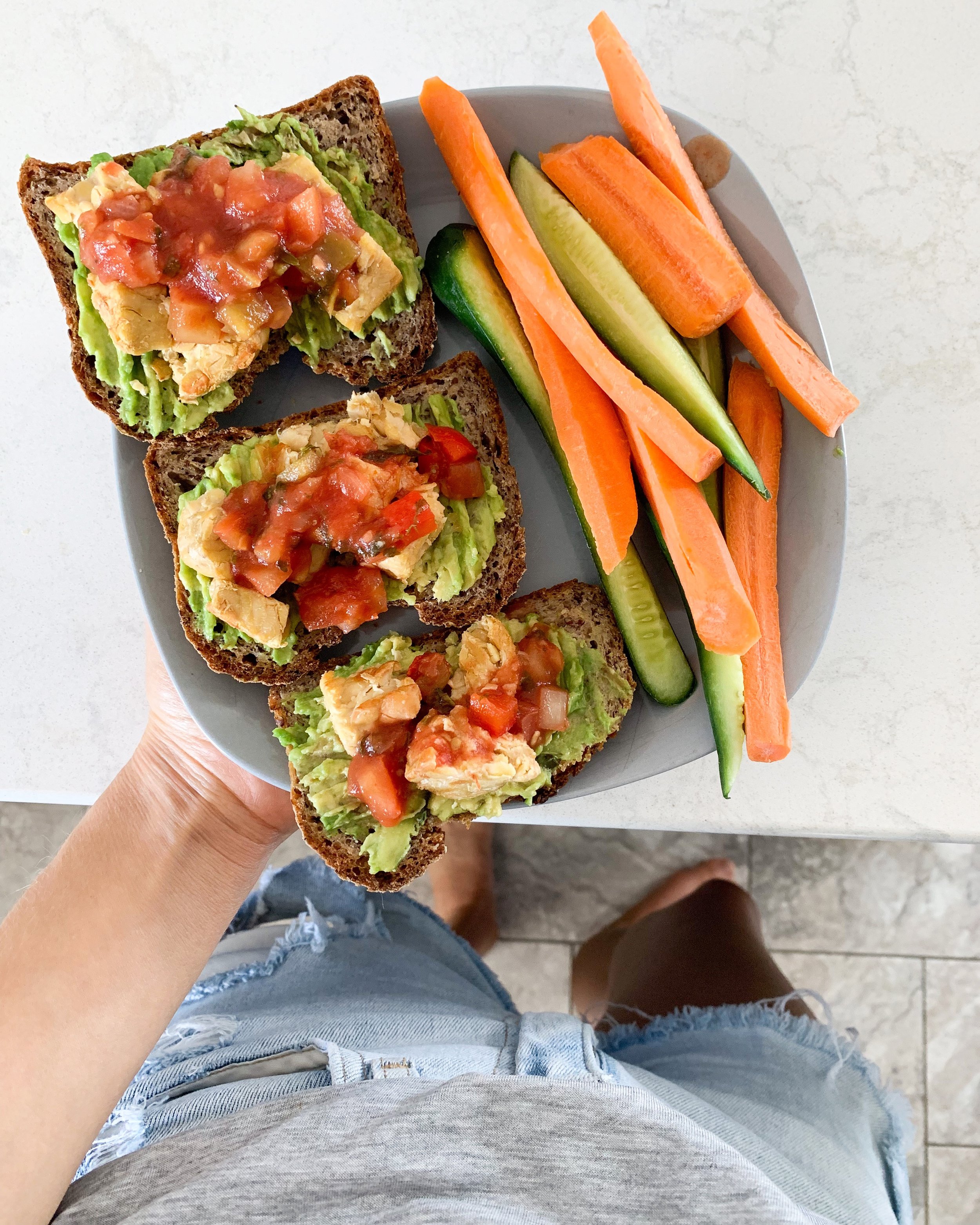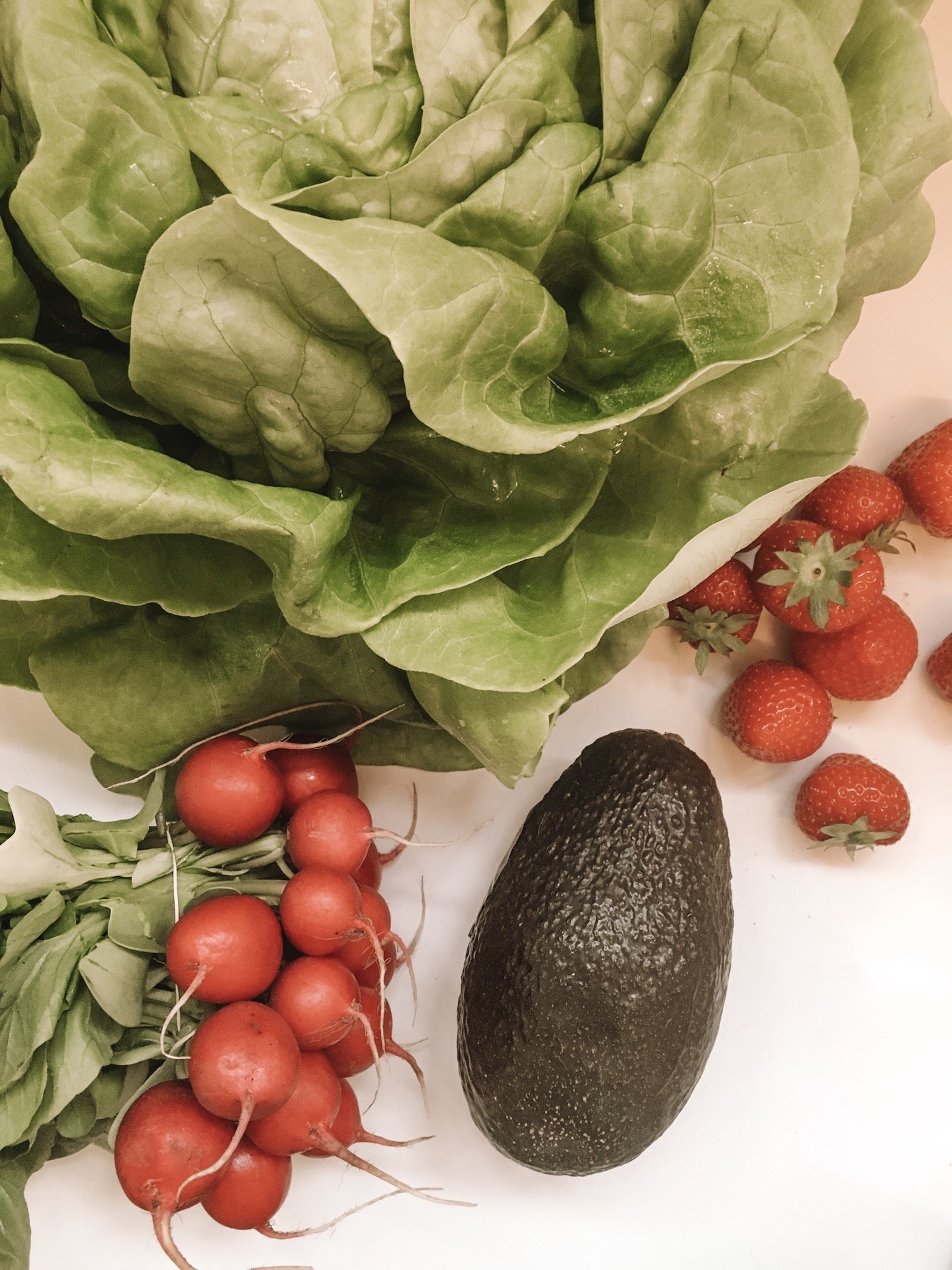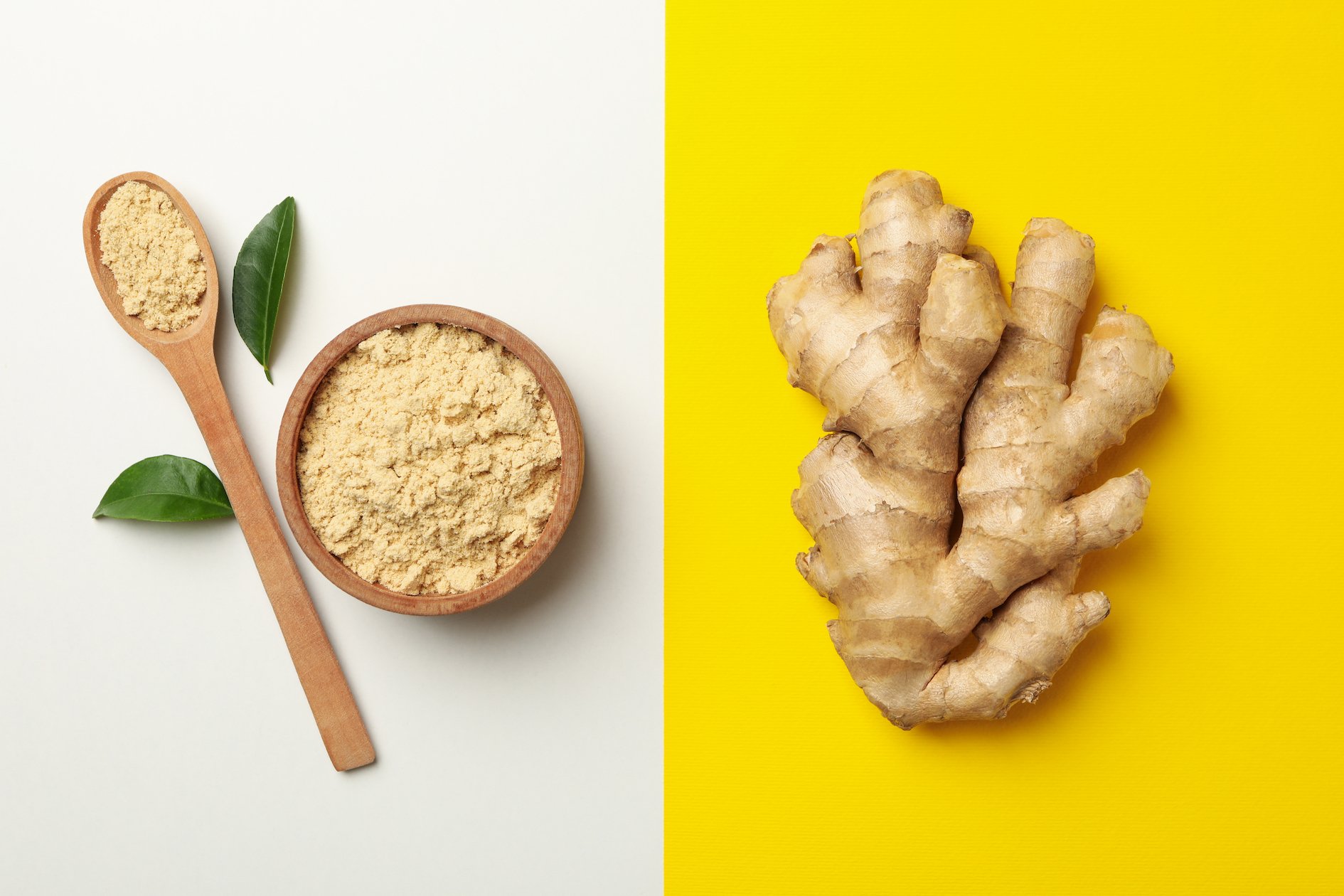How do you manage PCOS holistically?
Holistic means the whole being, which is why when it comes to holistic management of PCOS we need to look at the whole entire body but also the mind and spirit if we truly want to heal. Instead of using band-aid after band-aid in the form of pills, it’s much more effective to address the root cause in order to stop the fire and thus reduce symptoms.
This means looking at our diet and lifestyle to make sure it is supportive of our PCOS. Each person will need an individualized approach as their root cause will look different from the next PCOS woman however, overall the physical foundations to address are as follows:
Underlying foundations to address
Inflammation
Chronic low-grade inflammation is a central factor to PCOS and plays a key role in symptoms such as acne, weight gain, hirsutism, irregular cycles, and cardiovascular risk. Inflammation worsens PCOS but PCOS can also create inflammation… it’s a vicious cycle.
Inflammation can stem from intestinal permeability, insulin resistance, toxin exposure, obesity, chronic stress, poor diet, and medications.
Inflammatory chemicals can damage our own cells while also disrupting hormones, damaging egg quality, worsening mental health, damaging the intestinal barrier, and promoting androgen production from the ovaries. Inflammation can be seen as a byproduct but also a trigger for PCOS, which is why it’s so important to address it in any PCOS plan.
How do we calm inflammation?
Common allergenic foods such as corn, wheat, gluten, dairy, eggs, nuts, and soy can promote inflammation in individuals, but these foods will differ from person to person. A good way to identify which foods are problematic for you is to keep a food journal and do an elimination diet. You may need to find a nutritionist or dietitian to follow this properly. Foods to avoid at all costs are trans fats, hydrogenated oils, processed foods, and refined carbs and sugars. These contribute to inflammation in everyone and should be avoided with PCOS. Alcohol can also raise inflammation and interferes with optimal liver function, which is usually compromised in PCOS.
I love including natural anti-inflammatory foods such as ginger, turmeric, berries, leafy greens, cinnamon, and omega 3 fatty acids (found in fatty fish like wild salmon) into my diet. You always want to start with diet before turning to additional supplements for support.
Note: PMS is a big indicator of inflammation going on in the body, which means your body is producing too many inflammatory chemicals, also known as cytokines, which can cause symptoms like cramping and mood swings.
Check out my free Anti-PMS Guide Here.
Gut Microbiome
The scientific evidence is becoming overwhelming in terms of how the microbiome influences our overall health. In addition, PCOS women have been shown to have a lower amount of bacterial diversity than women without the syndrome regardless of them being overweight or not.
The gut microbiome has a real influence on how PCOS can manifest as dysbiosis can worsen factors such as insulin resistance, inflammation, and obesity. Women with PCOS also exhibit mood imbalances and commonly complain of terrible mood swings, depression, and uncontrollable anger. We now know our gut has a direct link and can communicate with the brain via the vagus nerve as well as produce neurotransmitters like serotonin, the feel-good hormone. So what you eat really does impact how you feel!
Studies are increasingly pointing towards targeting the gut microbiota to achieve results with PCOS and see shifts with inflammatory, cardiovascular, and metabolic markers.
Foods rich in fiber such as beans, legumes, non-starchy vegetables, oats, etc as well as prebiotics such as onions, garlic, asparagus, dandelion greens, artichoke, etc are an important part of a PCOS diet in order to provide the fuel for our beneficial microbes, alongside traditional fermented foods.
Adrenal stress
Stress is a significant factor for PCOS. Not only do PCOS symptoms cause stress but the underlying imbalances are also worsened by stress and create further stress on the body. Stress ultimately is defined as anything that puts the body out of homeostasis, or balance.
Which means this isn’t only emotional stress but also physical and chemical. So yes, your beauty products, dieting, junk food, all-nighters, alcohol, or crazy spin classes could all be putting your body under a lot of stress. And not doing your PCOS any good!
Most women with PCOS produce androgens from the ovaries and to a lesser extent, the adrenals. This can manifest differently inside of the body. For instance, it is more common to see adrenal androgen excess manifest in lean PCOS. Regardless of whether you make up one camp or the other, women with PCOS are much more affected by stress and high cortisol levels than non-PCOS women. When we are under chronic stress we see higher cortisol levels which result in hormonal imbalances like low progesterone and excess estrogen.
Another factor to consider is that women with PCOS are actually more prone to producing higher levels of stress hormones than women without. This is why stress management is a central strategy to managing PCOS.
How do we manage stress with PCOS?
If you are practicing intense workouts with lots of cardio… bring it down a notch. Take up yoga or pilates, include walking into your daily routine, and give yourself some rest days!
Adopt a bedtime routine. Sleep is such an important component of a healthy PCOS lifestyle in order to bring down cortisol levels and regulate the circadian rhythm (shown to be dysregulated in PCOS women). Aim for 7-9 hours per night. Avoid electronics 1 hour before bed and create a relaxed environment before bedtime.
Practice meditation. This practice has been shown to lower stress hormones, improve mood, bring down inflammation and support the immune system.
Avoid or reduce coffee. Caffeine has a stimulatory effect on the adrenals and can worsen hormonal imbalances like PCOS. If you find yourself depending on your coffee to start your day or get through the afternoon slump, this is a sign you are relying on it. Find alternatives like dandelion, chicory root, or herbal blends like Four Sigmatic.
I love Four Sigmatic as an alternative to coffee to help support the adrenals and energy levels throughout the day. Stressed and can’t sleep? They have a formula for that as well!
Insulin Resistance
Insulin resistance is present in up to 70% of women diagnosed with PCOS. Though it is more common in obese and overweight individuals it can also be present in lean PCOS women who do not have problems with their weight.
This is important to note when assessing the core imbalances for PCOS and explains why testing is so critical. Women with PCOS are more prone to insulin resistance due to genetic factors and the underlying chronic low-grade inflammatory state.
What is IR? Insulin resistance happens when cells do not respond properly to the hormone insulin to let glucose enter the cell to be used as energy. Also known as pre-diabetes, insulin resistance is mainly caused by lifestyle factors such as lack of exercise, chronic stress, and poor diet consisting of refined carbs, hydrogenated oils, and excess sugars.
With PCOS the overproduction of insulin in the bloodstream triggers androgen production in the ovaries which can stall ovulation and promote symptoms like hirsutism, acne, and hair loss.
Signs and symptoms of blood sugar and insulin problems include abdominal adiposity, stubborn weight loss, dark pigmentation of skin folds, increased hunger and cravings, and skin tags.
One of the first things to do when it comes to balancing blood glucose and insulin with PCOS is to eliminate refined carbs and sugars which are void of nutrients and cause blood sugar spikes and crashes.
In addition, many of us don’t know that there are foods that spike insulin specifically, but not blood sugar, such as dairy and red meat. So it’s important to be aware that carbohydrates are not the only macronutrients to pay attention to. And to remember that carbohydrates are not the enemy! Certain carbs can actually improve insulin resistance as high fiber diets have been shown to improve metabolic conditions (1) (2).
Always aim for a balanced plate of protein, complex carbs, non-starchy vegetables, and a healthy fat to ensure blood sugar and insulin remain balanced.
Environmental toxins
Environmental toxins have been shown to play a significant role in the pathogenesis of PCOS. Exposure to toxins such as BPA in utero increases the risk of PCOS which means that if the mother was exposed to toxins during pregnancy, there is a greater chance of her daughter showing signs of PCOS later in life.
Research has confirmed elevated levels of BPA in patients with PCOS in comparison with healthy controls.
BPA and other endocrine-disrupting chemicals contain estrogen-mimicking compounds (xenoestrogens) that put the body out of balance. This worsens PCOS symptoms and can contribute to obesity by altering fat storage, energy balance and promoting leptin and insulin resistance.
Though we don’t have much control over our mother’s health as an unborn child, we can support our detoxification pathways and limit our exposure to these chemicals as adults.
Fiber is especially important in order to bind to and eliminate excess hormones via bile and the colon. So eat your vegetables at every meal! And make sure you are pooping at least once per day. I love adding 1 tbsp of chia seeds or flaxseeds as an extra boost of fiber in the morning with lots of water.
Though we can’t control every toxin that we come into contact with, there are many ways to reduce our exposure to endocrine-disrupting chemicals at home. Switch out conventional beauty and body care products for organic brands or make your own, use ceramic, stainless steel or glass containers, open the windows every day to filtrate the air inside your home, keep shoes at the door to avoid toxins being brought into the home, and clean your clothes and sheets with organic brands.
I always recommend my clients use ewg.org to verify their current products and find alternative clean brands.
Okay, you made it this far, congrats! But you may be thinking this is a lot.
Hold it right there sister. My biggest advice to you? One step at a time. This isn’t a race. PCOS is a lifelong condition which means every day counts. And small changes do add up.
Some of my tips for you to focus on or start with:
Find a support system. Have you joined my free private community?
Focus on a whole foods diet.
Minimize/Avoid processed foods, alcohol, refined sugars, refined carbohydrates.
Love yourself. Give yourself the pep talk, book that massage, go for a walk, say no when you mean it, schedule a “me” day. Do it for you and leave the guilt behind. You are worth it!
Still feeling stuck with your PCOS? Not sure where to start? My PCOS Course helps you to navigate every step of the way. Learn how to ditch the diets and use real food to heal your body. But we don’t stop there. Discover the holistic approach to managing your PCOS by nourishing your mind, body, and soul.
Disclaimer: Information on this site is intended only for informational purposes and is not a substitute for medical advice. Always consult with a healthcare provider before implementing changes. Read additional disclaimer info here.







